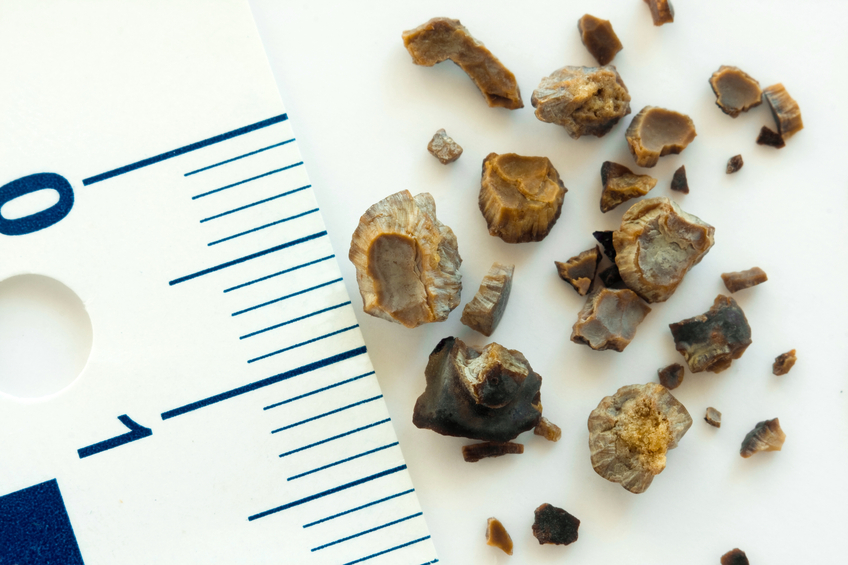The number of adults with kidney stones is rising in the United States at an alarming rate, especially among women who have not carried the same risk as men in the past. The incidence of kidney stones has increased from 3.8 per cent in the late 1970s to 8.8 per cent in recent years. It is estimated that one in ten people will experience a kidney stone in their lives.
Obesity is the primary reason kidney stones are becoming so common and a poor diet with high sodium levels, too much animal protein and inadequate fluid intake can raise your risk for developing the hardened masses. A family history of the condition, along with high blood pressure, diabetes and consuming too much sugar also can cause a stone to form. In rarer cases, kidney stones can be caused by upper urinary tract infections.
Symptoms
- Lower back pain or vague stomach pain
- Blood in the urine
- Nausea
- Fever or chills
- Cloudy, foul smelling urine
Treatment
- See your doctor for treatment options
- Treatment will depend on the size and placement of the stone
- In many cases, the stone can be passed naturally
- Drink plenty of water to help pass the stone
- Passing a kidney stone is extremely painful and your doctor may suggest pain relievers
- Shock wave therapy is sometimes used to break up the stone
- In serious cases, surgery may be required to remove the stone
After treatment, the kidney stone will be analyzed to find the cause. Because the risk for a subsequent stone increases by 50 per cent after the first case and raises the risk for developing chronic kidney disease, patients may be placed on a restrictive diet.
Kidney Stone Prevention Diet
Restrict salt to no more than 2,400mg per day
Consume only six ounces of animal protein each day
Reduce oxalate rich foods such as spinach, rhubarb, beets, nuts, chocolate, wheat bran, strawberries, peanuts and almonds.
Drink three quarts of water each day
Limit sugar and high-fructose corn syrup
Lose weight if your are overweight
Talk with your doctor or consult a registered dietitian about making changes to your diet to prevent kidney stones. For more information visit the American Urological Association website at: http://www.urologyhealth.org/urologic-conditions/kidney-stones .






Add Your Voice
0 Comments
Join the Discussion